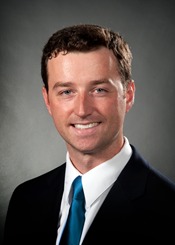Cooperative Education in a Medical Physics Masters Graduate Degree Program
A Riegel1,2,3*, P Taylor1,3, (1) Northwell Health, Lake Success, NY, (2) Zucker School of Medicine at Hofstra/Northwell, Hempstead, NY, (3) Hofstra University, Hempstead, NY
Presentations
MO-AB-TRACK 7-5 (Monday, 7/26/2021) 10:30 AM - 12:30 PM [Eastern Time (GMT-4)]
Purpose: Graduate medical physics education is often geared towards three career paths: Academic medical physics through post-doctoral research, clinical medical physics via board certification, or some weighted combination of the two. There are, however, many jobs where medical physics expertise may be useful. We developed a cooperative education or “co-op” course within our graduate program to connect employers to second year master’s students. The purpose of the co-op was threefold: First, provide additional professional experience in our field; second, expose students to career pathways previously not considered; third, provide a means to financial support during graduate study.
Methods: The co-op course was first offered in summer 2019. Students were eligible to participate after completing one year of study with a minimum cumulative GPA of 3.0. Three local companies agreed to offer a co-op: A medical physics consulting group, a radiation oncology software company, and an intellectual property law firm. Employers were required to sign a statement of understanding regarding educational expectations and minimum hourly wage. Student were hired directly by employers. Students and employers were asked to complete performance evaluations twice a semester to ensure a positive experience for both participants. Two graduates and two current students have participated in the co-op.
Results: Survey results from participating students, alumni, and employers have been overwhelmingly positive with students saying they would recommend the co-op to other students and employers saying that having a co-op student was very positive for their company. One firm hired their co-op student full-time after graduation.
Conclusion: Cooperative education is an innovative program that, in addition to providing much-needed funding to graduate students, yields invaluable professional experience to students that may illuminate career opportunities beyond traditional academic and clinical medical physics. We plan to expand the co-op program to include more local firms in the near future.
Handouts
Keywords
Not Applicable / None Entered.
Taxonomy
Not Applicable / None Entered.
Contact Email




